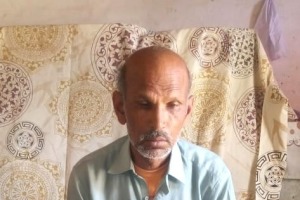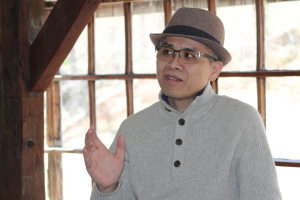Professor: Mother Teresa Taught Me How Secularism 'Radically' Diminishes Search for Truth
Christianity gives the best picture of how to bring justice to the poor, said a professor and author who had work with Mother Teresa in Calcutta, India.
Mary Poplin, professor of education at Claremont Graduate University and author of the book Finding Calcutta, shared stories of her involvement in various movements – from feminism to Marxism – and her travels to work with the poor in Calcutta in a talk titled "Radical Marxism, Radical Feminism, Radical Love: What Mother Teresa Taught Me About Social Justice" at the Veritas Forum at Davidson College in Davidson, N.C. on Thursday.
Before she worked with Mother Teresa for two months in 1996, Poplin spent many years saying that she was spiritual but that she didn't need a god.
She told those at the forum that she started exploring Christianity after a dream she had and after talks with a Christian student in one of her classes. These events eventually led her to give her life to Christ.
It was then she started questioning why she never taught about certain religious issues as a professor, and why Mother Teresa never made it onto one of her syllabi even though "I had always professed to love these things she did: working with poor women," she said.
This is ultimately what led her to visit Calcutta for a few months. She said she wanted to understand why the nun called her work "religious work and not social work," and what it was she was really up to.
Through this experience and her interactions with Mother Teresa and the nuns, Poplin realized that everything they did was religious. "Their first work was to belong to Jesus and to pray incessantly. They were not supposed to speak [unless necessary], they were supposed to be praying all the time," Poplin explained.
She said she found that Mother Teresa's Judeo-Christian view showed an "inexplicable connection between justice and righteousness." It also "has a non-utilitarian view of human beings as being made in the image of God and thus sacred. There is a body and we're cells in that body, and the least is as important as the strongest," she said.
Shortly before she left to return to the United States, Mother Teresa told Poplin something she would never forget: "God does not call everybody to work with the poor. God does not call everybody to live poor like he calls us to. But God does call everybody to a Calcutta. You have to find yours."
Poplin said she felt like she had been physically hit when she heard that. She returned to teaching and began trying to write about Mother Teresa in what she calls a "secular Christian way."
In doing so, she fell into an intellectual crisis. "I felt like I was lying to my students," she said, because she was excluding the worldview of the nun. It was then, Poplin said, she knew she had found her Calcutta.
Poplin realized she could no longer exclude the Judeo-Christian worldview in her teachings. She said in the 21st century, secularism has become widely accepted, and she wanted to give her students a fuller picture – not leaving out what Mother Teresa really believed.
She began to study worldviews. "I realized from any worldview I had been teaching and living, Mother Teresa was incomprehensible. I couldn't describe her through any of these worldviews."
This "radical secularization" has made us "woefully ignorant of what most people believe, and secularization has radically diminished the universities search for truth. It denies it as a place to be free and open marketplace of ideas," she said.
The bottom line for Poplin as a professor is this: "I want my students to understand all the options for thinking through all the issues. I want everyone to be fully conscious. I teach Marxism and Judeo-Christianity." She says that leaves it up to her students to choose what view really fits best with reality.
Poplin said this approach is important because "Mother Teresa taught me what you believe and what you disbelieve makes an enormous difference."




























